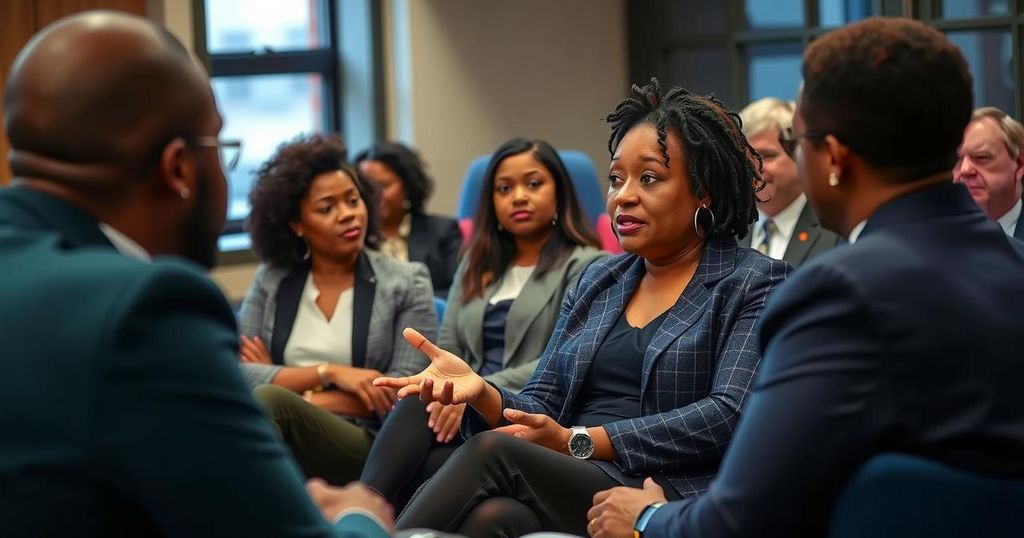Stacey Abrams Empowers Students for Civic Engagement Post-Election

On November 20, Stacey Abrams engaged students at Howard University in a dialogue regarding the implications of the recent presidential election. She discussed the potential rise of theocracy, the risks to social equity rights, and the importance of coalition-building in fighting against political regressions. Abrams called on students to embrace active civic participation as a means of shaping their future and safeguarding democracy.
On November 20, Stacey Abrams, the inaugural Ronald W. Walters Endowed Chair for Race and Black Politics at Howard University, convened a dialogue with students in Douglass Hall to reflect on the ramifications of the 2024 presidential election. She expertly navigated a crowded room, addressing student inquiries while facilitating discussions that allowed the students to process their emotions. Abrams emphasized the necessity of remaining hopeful and engaged in democratic processes, stating, “I am someone who believes in this country’s capacity for more, even though we’ve had some trouble manifesting what it should be.”
Abrams framed the conversation around the political climate post-election, urging students to consider the implications of misinformation and the potential emergence of theocracy in American politics. She expressed concern over recent legislative efforts, which she believes seek to prioritize evangelical Christianity in national identity.
Furthermore, she illustrated the potential threats to hard-won rights, identifying the erosion of Title IX amidst ongoing attacks on social equity initiatives. “They are doing their best to weaponize Title IX to eliminate diversity, equity and inclusion,” she warned, highlighting the need for vigilance in safeguarding progress.
Addressing issues uniquely affecting Black women, Abrams acknowledged their collective exhaustion and frustration in trying to garner broad support. She articulated the importance of solidarity across racial and gender lines, asserting, “Black women are usually the most effective fighters because we are often the most targeted victim, and I refuse to submit to my own victimization, so I keep fighting.”
In her concluding remarks, Abrams encouraged students to engage actively in their communities, emphasizing the critical role of collective action and civic participation in shaping the future. She tasked her audience with specific roles to foster political awareness and activism in preparation for the upcoming midterm elections, underscoring the power of grassroots engagement. “It terrifies politicians to see people they don’t know because that means you took time to find us,” Abrams concluded, urging the students to become proactive in their political dealings and local governance.
Stacey Abrams, a prominent political figure and advocate for voting rights, holds an esteemed position at Howard University, where she leads discussions on race and politics. Her expertise allows her to address the challenges faced by marginalized communities, particularly in light of recent election outcomes and shifting political landscapes. Given her history, including near-gubernatorial victories in Georgia, Abrams is a notable voice in advocating for civic engagement and pushing back against potential regressions in social equity and rights.
In conclusion, Stacey Abrams resoundingly articulated themes of hope, collective responsibility, and the necessity for active engagement among students in the aftermath of the 2024 election. She highlighted the challenges facing Black women and marginalized groups while emphasizing the importance of solidarity and coalition-building as mechanisms for social change. Abrams’ messaging strongly asserted the obligation to participate actively in democratic processes to safeguard and expand the rights achieved through decades of struggle.
Original Source: newsroom.howard.edu








